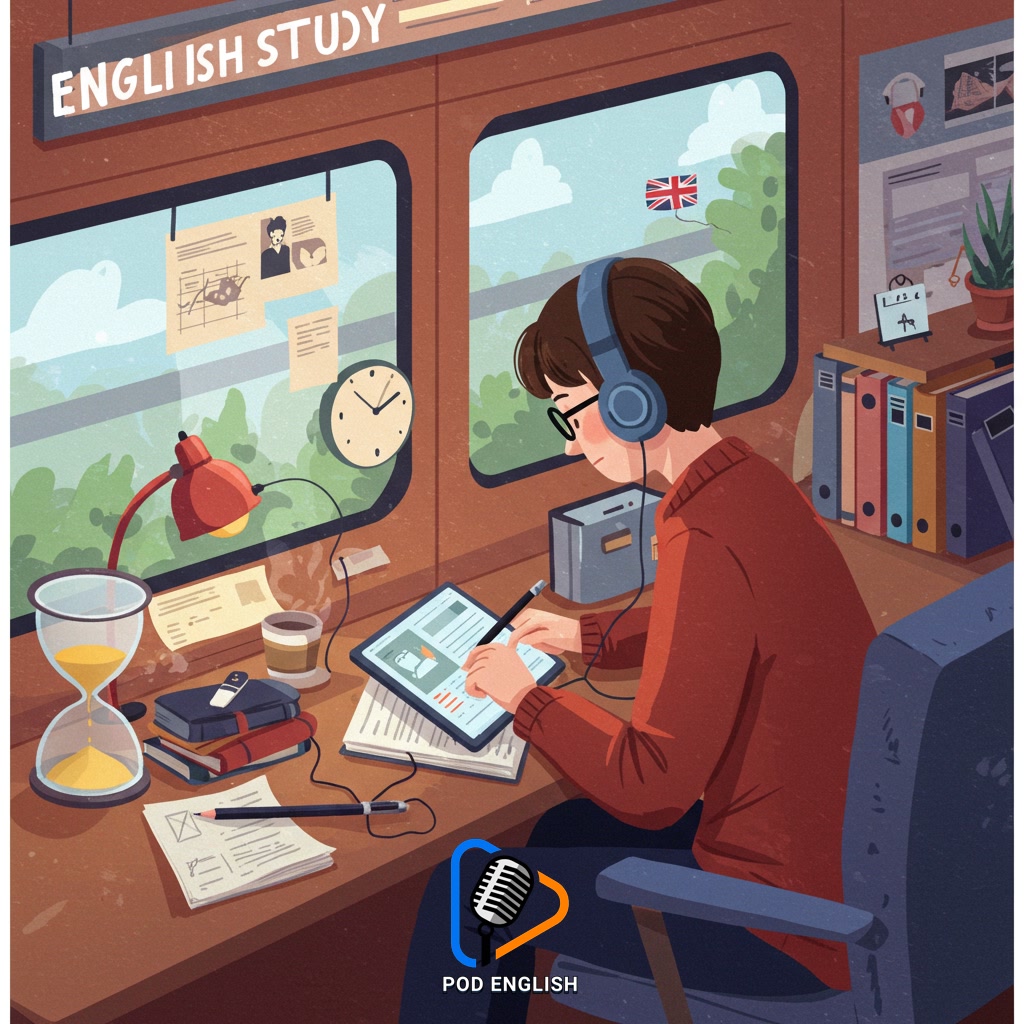Learn English
Stay Focused on English Study: Practical Tips for Busy Learners

This resource offers practical guidance for individuals with busy schedules seeking to maintain concentration on their English language development. It presents actionable methods designed to help learners effectively integrate regular English practice into their daily lives. The goal is to support ongoing advancement and consistent dedication to enhancing English skills.
Table of Contents
- Section 1: Understanding the Challenge: Why Busy Learners Struggle
- Section 2: Strategic Planning: Setting Realistic Goals and Scheduling
- Section 3: Integrating English Study into Your Daily Routine
- Section 4: Maximizing Focus and Efficiency During Study Time
- Section 5: Leveraging Resources and Technology Effectively
- Section 6: Staying Motivated and Overcoming Plateaus
- Section 7: Consistency is Key: Making Progress Over Time
Section 1: Understanding the Challenge: Why Busy Learners Struggle
Busy schedules pose significant challenges for individuals trying to maintain focus on English language study. A primary hurdle is the constant feeling of not having enough time. Juggling work, family responsibilities, social commitments, and other daily tasks leaves little room for dedicated learning. This scarcity of time often results in inconsistent study habits, making it difficult to build momentum and retain new information effectively. Furthermore, the demands of a busy life can lead to fatigue and stress, which directly impact motivation and concentration levels. Learners may feel overwhelmed by the volume of material or discouraged by slow progress due to irregular practice. Ultimately, English study can easily get deprioritized when faced with more immediate or pressing demands, creating a cycle of struggle to stay consistent and focused.

Understanding the Challenge: Why Busy Learners Struggle
Section 2: Strategic Planning: Setting Realistic Goals and Scheduling
Following the recognition that busy schedules present a significant barrier to consistent English study, the next crucial step is to implement strategic planning. This involves setting goals that are not only ambitious enough to drive progress but also genuinely realistic given your time constraints. Avoid overwhelming yourself with targets that are impossible to meet; instead, break down larger objectives into smaller, manageable tasks. Concurrently, actively schedule dedicated slots for English practice in your daily or weekly routine. Treat these study periods as non-negotiable appointments, just like work meetings or family commitments. By clearly defining what you aim to achieve and allocating specific time for it, you transform vague intentions into concrete actions, making it much easier to stay focused amidst a hectic life.

Strategic Planning: Setting Realistic Goals and Scheduling
Section 3: Integrating English Study into Your Daily Routine
Recognizing that finding large, dedicated blocks of time for English study is challenging with a busy schedule, the practical solution lies in integration. Instead of trying to carve out significant chunks, focus on weaving shorter, focused study activities into the fabric of your existing daily routine. This could involve listening to English podcasts or audiobooks during your commute, using language learning apps for a few minutes during breaks, reviewing vocabulary flashcards while waiting in line, or reading a short English article over your morning coffee. The key is consistency; brief, regular exposure is more effective than infrequent marathon sessions. By linking English practice to habits you already perform daily, you make it a natural, less daunting part of your life, thereby maintaining momentum and making consistent progress towards your established English learning goals.

Integrating English Study into Your Daily Routine
Section 4: Maximizing Focus and Efficiency During Study Time
Building on the idea of integrating study into a busy schedule, the key to maximizing focus and efficiency in limited time lies in strategic planning and execution. Instead of feeling overwhelmed by needing long periods, concentrate on making shorter sessions highly productive. This involves identifying your peak focus times, even if they are only 15-20 minutes long, and dedicating them to specific, manageable tasks like reviewing flashcards, practicing a specific grammar point, or listening to a short podcast. Crucially, minimize distractions during these focused bursts by turning off notifications and finding a quiet space if possible. Employing active learning techniques, such as summarizing what you’ve learned or testing yourself immediately, significantly boosts retention and efficiency compared to passive reading or listening. By approaching your study in focused, efficient segments, you can achieve substantial progress without requiring large, uninterrupted time blocks.

Maximizing Focus and Efficiency During Study Time
Section 5: Leveraging Resources and Technology Effectively
Building on the idea of integrating study into a busy schedule, the key to maximizing focus and efficiency in limited time lies in strategic planning and execution. Leveraging the wealth of available resources and technology is paramount for busy English learners. Instead of feeling overwhelmed, identify and utilize tools that fit seamlessly into your day. Mobile apps offer quick grammar exercises or vocabulary reviews during commutes. Podcasts and audiobooks allow for listening practice while multitasking. Online platforms provide interactive lessons and practice materials accessible anytime. Utilizing technology like smartphones, tablets, and computers enables personalized learning paths and progress tracking. The goal is to find resources that cater to your specific needs and learning style, making study sessions, even short ones, highly productive and engaging.

Leveraging Resources and Technology Effectively
Section 6: Staying Motivated and Overcoming Plateaus
Even with the best strategic plan for integrating English study into a busy schedule, maintaining consistent motivation and navigating periods of slow progress, known as plateaus, are significant challenges. It’s crucial to recognize that learning isn’t always a linear upward climb; there will be times when progress feels stagnant. To stay motivated, connect your study directly to your personal goals – whether it’s career advancement, travel, or simply the joy of communication. Break down larger goals into smaller, achievable milestones and celebrate each accomplishment, no matter how small. When hitting a plateau, try switching up your study methods or topics to inject novelty and renewed interest. Remember why you started and visualize the benefits of continued effort. Sharing your journey with others or finding a study partner can also provide valuable support and accountability, helping you push through difficult phases and maintain the momentum built through effective planning.

Staying Motivated and Overcoming Plateaus
Section 7: Consistency is Key: Making Progress Over Time
Consistency is the cornerstone of mastering English, especially when time is limited. Rather than aiming for infrequent, long study sessions, focus on incorporating short, regular bursts of practice into your daily routine. Even 15-30 minutes consistently applied each day will yield far better results over time than sporadic, intense study marathons. This steady effort builds momentum, solidifies learning, and helps you push through plateaus by maintaining continuous engagement with the language. Think of it like building a house brick by brick; each small piece contributes to a strong, complete structure. Prioritizing consistency ensures ongoing exposure and practice, making progress an inevitable outcome of your dedicated effort.

Consistency is Key: Making Progress Over Time













